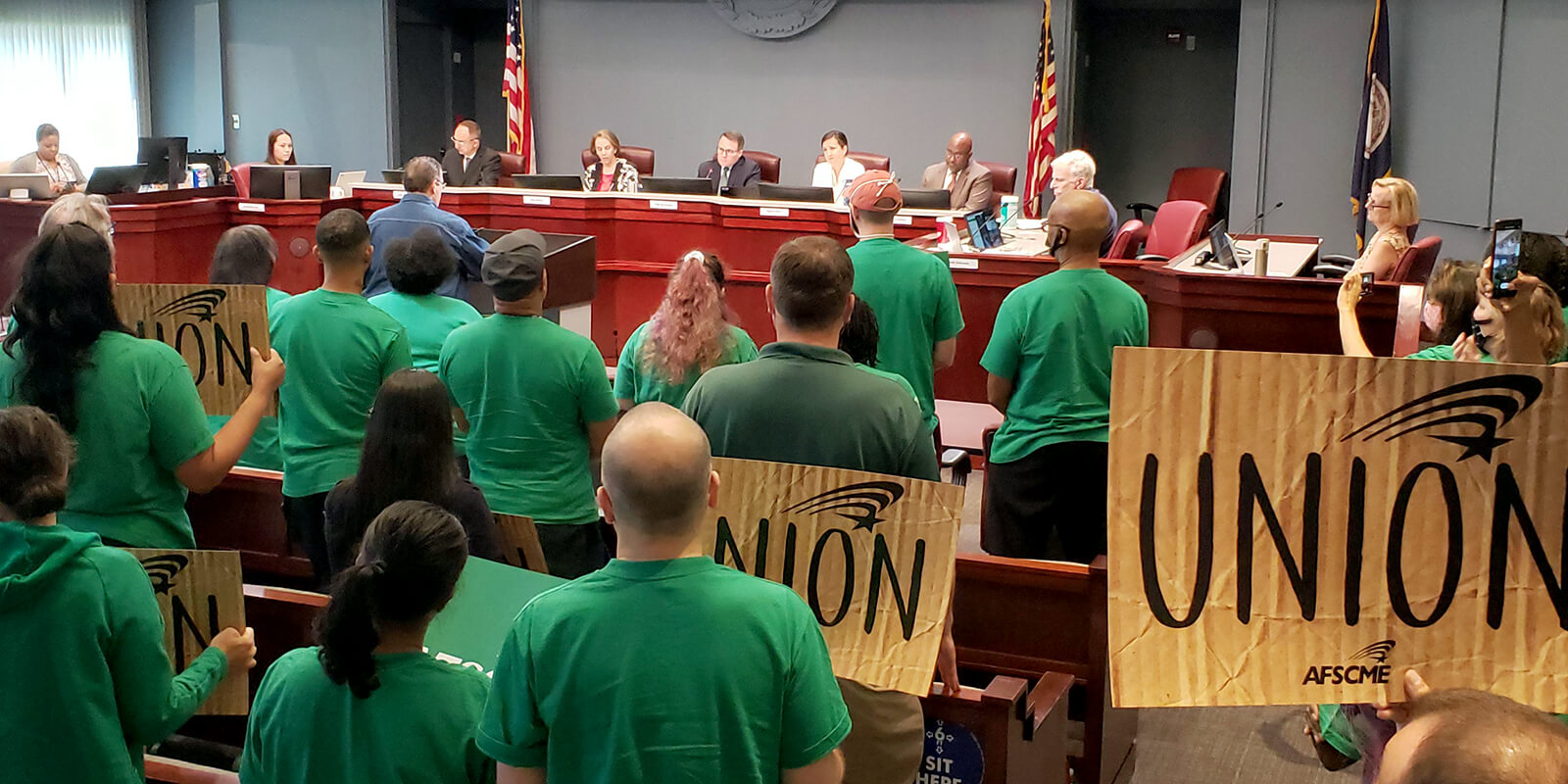AFSCME members in Virginia are rejoicing in their success in protecting collective bargaining rights for local public employees across the commonwealth.
Their actions helped persuade the Virginia Senate to first defeat anti-worker bills filed in the Senate and, in February, to block House-passed anti-worker bills.
Members celebrated on Feb. 21 after the Senate Commerce and Labor Committee voted to defeat Del. Kathy Byron’s bill, which would have repealed a 2020 law that empowered localities to give their employees the freedom to collectively bargain for a contract.
Since taking effect last year, Del. Elizabeth Guzman’s HB 582 and Sen. Dick Saslow's SB 939 have triggered a slew of collective bargaining ordinances. In Northern Virginia, AFSCME members began organizing during the pandemic and helped pass the first collective bargaining ordinance in April in the city of Alexandria. Arlington County soon followed suit in June.
Luis Velez Sr., an Arlington County construction management specialist and a member of AFSCME Local 3001, recounted the spring and summer he began organizing for collective bargaining rights.
“As a resident of Alexandria, I was proud to stand with Alexandria city employees as they won a strong collective bargaining ordinance. I was even more excited, a few months later, as an Arlington County employee when we passed our own collective bargaining ordinance,” he said. “We have a lot of work to do as our localities continue to recover from the pandemic and we are stronger when public employees are respected, have a voice on the job, and strong unions to advocate for the communities that we serve.”
The 2022 legislative session saw two versions of a total repeal of collective bargaining, and a series of bills introduced by Del. Nick Freitas that would have chipped away at collective bargaining and union rights. These bills sought to redefine a union election, eliminate automatic dues deductions and force employees to pay for any time and resources employees used while engaging in union work like representation during work hours. Freitas also wanted to dictate how and what localities could include in their collective bargaining ordinances and agreements.
Harlie White, a traffic and lights technician for the city of Alexandria, submitted written testimony twice.
“I stand in opposition to any bill that would repeal my collective bargaining rights and take away my freedom to join a union,” he said. “I am glad Senator Dick Saslow was willing to protect the 2020 law that empowers localities to give public service workers the freedom to join a union, and local municipalities the autonomy to enact union agreements as they see fit.”
The threat of losing collective bargaining mobilized AFSCME Virginia activists. Aside from testifying via Zoom and submitting written testimony, many sent letters and called their delegates and senators to make clear how important collective bargaining rights are for public employees, especially as cities and counties slowly recover from the pandemic.
Charlotte Malerich, an Arlington public library assistant, wanted Virginia elected officials to understand that chipping away at rights meant employees would lose their voice on the job.
“My co-workers and I need actual, concrete support: sick leave, child care, flexible schedules, teleworking for the things we can do at home ... and PPE for things we can't do at home,” she said, referring to personal protective equipment. “And we need to have a voice at work to tell our managers what those needs are. Collective bargaining and union rights give us that freedom.”
